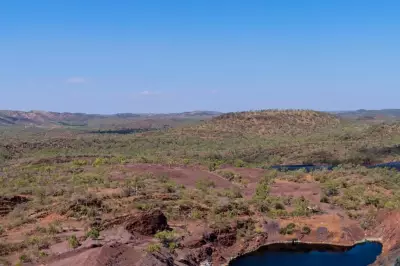
In a dramatic move to protect public health and their industry's reputation, oyster farmers along the New South Wales South Coast have taken matters into their own hands by creating a floating blockade. The desperate action comes as a naturally occurring algae bloom renders their precious harvest unsafe for human consumption.
The Great Wall of Oyster Bags
More than 50 dedicated farmers have joined forces, using their oyster-growing equipment to form an impressive barrier across the Crookhaven River. This makeshift blockade prevents any contaminated oysters from being accidentally harvested and distributed to unsuspecting consumers and restaurants.
"We're basically creating a wall of oyster bags across the river," explained one local farmer. "It's our responsibility to ensure that only the safest, highest-quality product reaches the market."
Nature's Red Flag: Understanding Algae Blooms
The current crisis stems from a natural phenomenon where certain algae species multiply rapidly in marine environments. While the bloom occurs naturally, it can produce toxins that accumulate in shellfish, making them potentially dangerous to eat.
Government authorities have implemented official harvesting bans in affected areas, but the farmers' blockade provides an additional layer of protection and demonstrates their commitment to food safety standards.
Economic Impact Bites Deep
The timing couldn't be worse for local producers. With peak summer demand just around the corner, the closure threatens to devastate family businesses that have operated in the region for generations.
"This is our livelihood on the line," shared a third-generation oyster farmer. "We're looking at significant financial losses during what should be our most profitable season. But consumer safety must come first."
Community Rallies Behind Producers
Local communities and seafood lovers have shown overwhelming support for the farmers' proactive approach. Many recognise that short-term inconvenience pales in comparison to maintaining the region's reputation for premium, safe seafood.
Environmental scientists continue monitoring water quality daily, hoping for favourable conditions that will dissipate the algae bloom naturally. Until then, the floating blockade stands as both a practical solution and a powerful symbol of the aquaculture industry's dedication to consumer protection.






